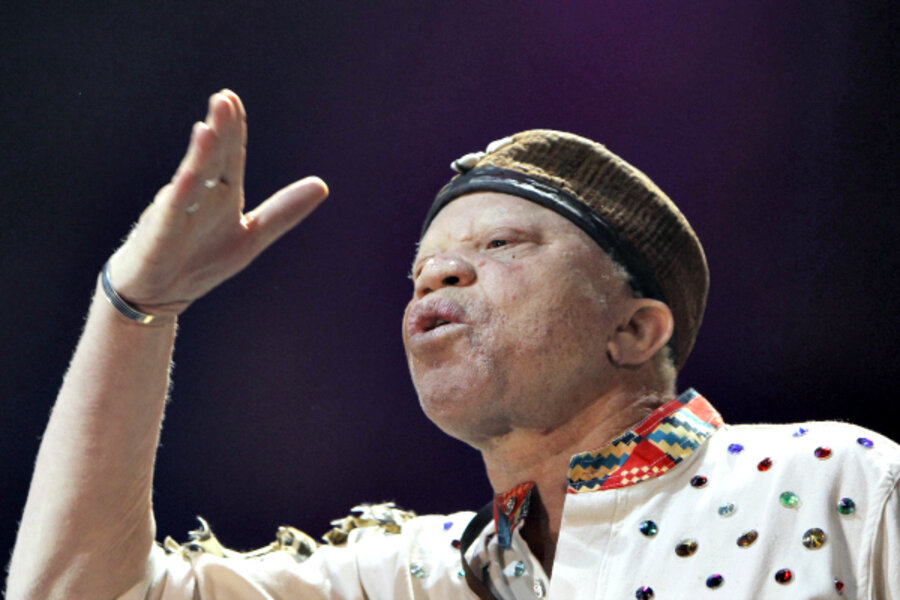Can music help heal Mali's war wounds?
Loading...
Mali may be in the headlines now for the conflict that erupted between Islamists who tried to take over the country and the government, which persuaded France to help chase them out. But in peaceful times, it has been famous rather for its rich cultural traditions – especially its musicians, whose songs are loved around the world.
One of Mali's biggest stars, the singer-song writer Salif Keita, says music can help bring peace and reconciliation in his homeland that has been torn apart by the war.
"The rest of the world – they have to know that Mali is one. Mali has never been two," the musician, a descendant of the founder of the Mali Empire and dubbed the Golden Voice of Africa, told BBC World Service presenter Mark Coles.
Mali's conflict began in early 2012 when Tuareg rebels led an uprising in the north, which resulted in the country being split in two. The Tuareg uprising was soon hijacked by better-armed and wealthier Islamist groups, who for 10 months controlled Mali's north before being ousted by French and Malian troops last month.
While in control, the Islamists imposed a harsh version of Islamic law. They carried out public whippings of people accused of adultery, punished others with amputations, forced women to veil their faces – and banned music from local radio stations.
Keita said he feared there could be revenge attacks on the Tuaregs, who are a semi-nomadic pastoralist people of North African Berber origin, spread across desert areas of the Sahel. Tuareg groups in northern Mali have long complained of being neglected and marginalized by the government, which rules from far away in the south. But Keita said the Tuareg rebels had "brought" the Islamists into their areas, with terrible results for ordinary people.
"The problem in the north is between black people and white [lighter-skinned] people – we have to find a solution for that," he said.
"Make concerts there to bring them together, to bring them in love together ... We need peace between them," added Keita, an albino who has long campaigned against the stigma attached to albinism, particularly in Africa.
Malian people "like Christian people, they like Muslim people, they like animistic people – this is our way to live," Keita said.
He is on a European tour to promote his latest album, "Talé," and is working on a project to make records with Paris-based artists to raise money to help people in the north.
Other Malian musicians have also appealed for an end to the fighting.
In January, a group of 37 teamed up to release a song called "Mali-ko" (Peace) composed by Fatoumata Diawara. Other well-known Malian singers and instrumentalists added lyrics and melodies, including Oumani Diabaté, Amadou & Mariam, Vieux Farka Touré, Tiken Jah Fakoly, Habib Koite, and Oumou Sangaré.
In the track, they urge Malians to be united, point to the suffering inflicted on civilians, and protest the loss of freedom after Islamists took over the north. "War has never been a solution," sings one.
Diawara told French radio station France Inter that musicians in the north had had their homes, studios, and instruments destroyed under Islamist control. The song, she said, is "our contribution to save this asset, this heritage, because Mali without music is no longer Mali."
• This article originally appeared at AlertNet, a humanitarian news site operated by the Thomson Reuters Foundation.







